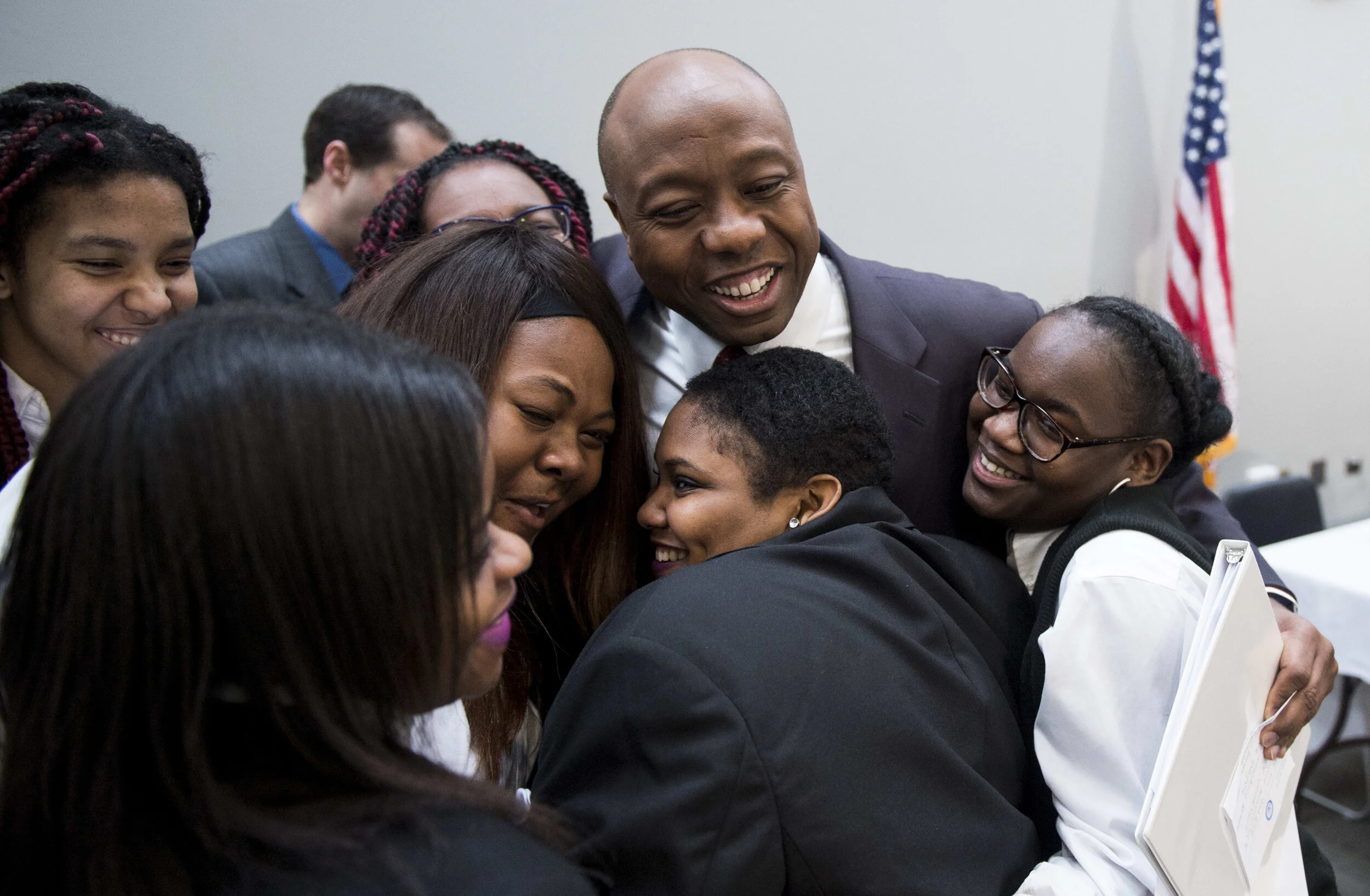In 2005, while serving as deputy policy director at the U.S. Department of Commerce, I served on an interagency team led by the White House Homeland Security Council that developed the National Strategy for Pandemic Influenza and National Strategy for Pandemic Influenza Implementation Plan. The strategy relied heavily on ways of slowing the spread of viral transmissions – “flattening the curve” – to reduce strain on the healthcare system and provide the time needed to develop and deploy vaccines. One such measure is closing schools.
Could Trump's 'Opportunity Zones' Fight Inequality in the UK?
The United States and Britain are in the middle of an enormous economic and societal shift brought about by globalisation and the automation enabled by advanced technologies.
These trends have without question brought enormous benefits. But there is growing acknowledgement that there are places and people who have been left behind, leading to economic insecurity and political unrest.
While large, urban areas with college education workers are booming, many other areas are still experiencing declining business starts, sluggish job growth, and persistent poverty.
In the wake of the financial crisis these communities are also finding themselves shut out of the capital needed to rebuild their main streets and revitalize their communities.
In the United States, a bipartisan provision of the Tax Cuts and Jobs Act of 2017 created Opportunity Zones which strives to provide catalytic capital to these communities. It works in this way. After investors sell appreciated assets such as stocks, bonds, or real estate, they can reinvest the money gained from those sales into certain equity-financed projects located in an Opportunity Zone.
Investing In Overlooked Entrepreneurs
The federal Opportunity Zone program offers the chance to invest in entrepreneurs in overlooked communities. A central animating theme of the American dream is that anyone with an idea can launch their own business. This entrepreneurial energy makes enormous contributions to society by addressing unmet needs, improving lives and solving pressing problems. These entrepreneurs also serve as an economic engine for communities by creating jobs that lift people out of poverty.
The Education Opportunity in Opportunity Zones
The Opportunity Zones program is the largest community-development initiative in a generation, but its success isn’t guaranteed. Policymakers, mayors, community leaders, investors, developers, and philanthropic organizations will have to work together to get the best results for Opportunity Zone residents. If education leaders pursue these investment opportunities, they, too, can benefit from the program—and ensure better outcomes for those in distressed communities for generations to come.
Refreshed regulations may give Opportunity Zones new life
The Opportunity Zone program received a considerable boost last week with several announcements during a White House convening of mayors, state policymakers, investors, and community organizations. Secretary of the Treasury Steven Mnuchin announced a second tranche of proposed regulations for the Opportunity Zone program, this time clarifying how Qualified Opportunity Funds can be used for business investment in struggling communities. He also announced a new process to explore reporting requirements. Additionally, HUD Secretary Ben Carson released the implementation plan for the White House Opportunity and Revitalization Council.
Uber Shows How Companies Are Preparing For the Future of Work
Workers who participate in the “gig economy” do not neatly fit into traditional categories of full-time or part-time workers. Some workers use side gigs to supplement their income and enjoy the flexibility of working when it is most convenient for them. Others are using this type of work as their primary source of income, but lack the employer-provided benefits many full-time employees enjoy.
That is what makes last week’s announcement by Uber and Arizona State University so significant. The new partnership gives their drivers flexible education options with 100 percent tuition coverage.
Income Share Agreements Are An Innovative Way of Financing Workforce Development
The evolving nature of work requires that we also evolve our system of training individuals for the jobs of today and tomorrow, and rethink the way we provide financial support. Income Share Agreements are a compelling financial innovation offering a solution for the students these new models serve.
For Opportunity Zones, Good Things Come to Those Who Hustle
Student-Centered Education Reforms + Time to Let Them Work = Progress. Need Proof? Look at Florida’s NAEP Scores
The National Assessment of Educational Progress is education’s version of Gross Domestic Product: a national indicator of the overall education health of the country. By that line of thinking, it’s difficult to see anything but stagnation in the numbers. We’re in an educational recession.
The outlier was Florida, whose NAEP gains were so significant that it prompted Peggy Carr, the usually reserved associate commissioner of assessment at the National Center for Education Statistics, to say, “Something very good is happening in Florida, obviously.” She went on to say that no matter how researchers broke out the data — by race, family income, gender, disabilities — they found that Florida showed growth on the 2017 NAEP, whereas most other states remained flat or saw declines.
The Investing in Opportunity Act: Hidden in the New Tax Bill, a Program to Help Charter Schools Secure Funds to Expand in High-Needs Areas
Tucked away in the Tax Cuts and Jobs Act is a little-noticed program called the Investing in Opportunity Act, which could bring much-needed financial investments to some of the nation’s most distressed communities. While most attention has focused on the benefits for housing development and new businesses, the program could also spur needed investments in education, particularly charter school facilities and skills training programs.
Why 'Opportunity Zones' Could Solve Unemployment In Slow-Growth Areas
The Other Challenge of Artificial Intelligence
By now, it is almost routine to see columns sounding the alarm about millions of existing jobs at risk of being automated. However, the real risk is that we do not have a system ready to equip people with the skills needed to fill millions of new and modified jobs that will result from the rise of AI.
















